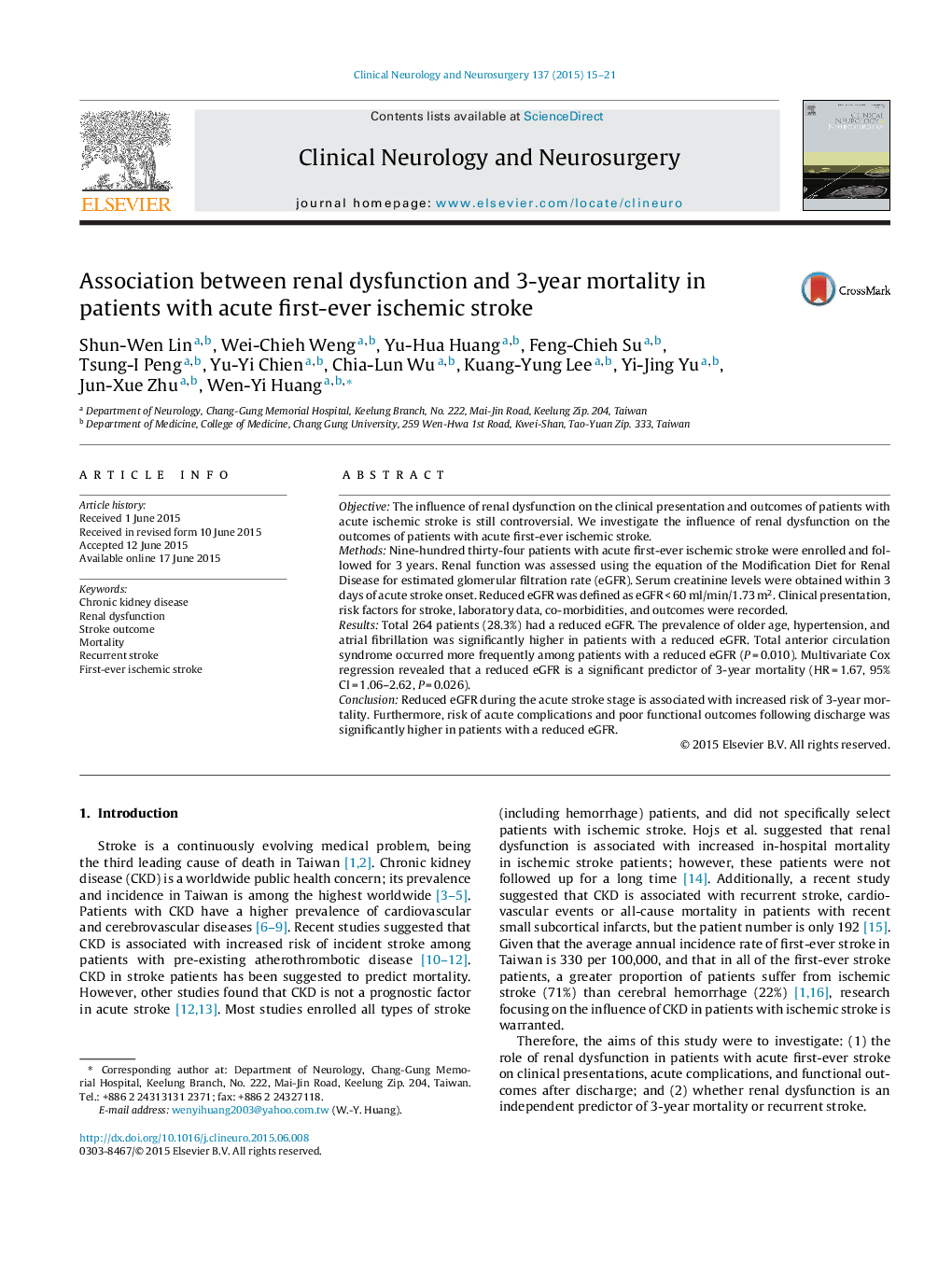| Article ID | Journal | Published Year | Pages | File Type |
|---|---|---|---|---|
| 3039685 | Clinical Neurology and Neurosurgery | 2015 | 7 Pages |
•The influence of renal dysfunction on stroke outcome is controversial.•We investigate the outcomes in patients with acute first-ever ischemic stroke.•Greater stroke severity and complication is present in patients with reduced eGFR.•Reduced eGFR is associated with increased risk of 3-year mortality.
ObjectiveThe influence of renal dysfunction on the clinical presentation and outcomes of patients with acute ischemic stroke is still controversial. We investigate the influence of renal dysfunction on the outcomes of patients with acute first-ever ischemic stroke.MethodsNine-hundred thirty-four patients with acute first-ever ischemic stroke were enrolled and followed for 3 years. Renal function was assessed using the equation of the Modification Diet for Renal Disease for estimated glomerular filtration rate (eGFR). Serum creatinine levels were obtained within 3 days of acute stroke onset. Reduced eGFR was defined as eGFR < 60 ml/min/1.73 m2. Clinical presentation, risk factors for stroke, laboratory data, co-morbidities, and outcomes were recorded.ResultsTotal 264 patients (28.3%) had a reduced eGFR. The prevalence of older age, hypertension, and atrial fibrillation was significantly higher in patients with a reduced eGFR. Total anterior circulation syndrome occurred more frequently among patients with a reduced eGFR (P = 0.010). Multivariate Cox regression revealed that a reduced eGFR is a significant predictor of 3-year mortality (HR = 1.67, 95% CI = 1.06–2.62, P = 0.026).ConclusionReduced eGFR during the acute stroke stage is associated with increased risk of 3-year mortality. Furthermore, risk of acute complications and poor functional outcomes following discharge was significantly higher in patients with a reduced eGFR.
